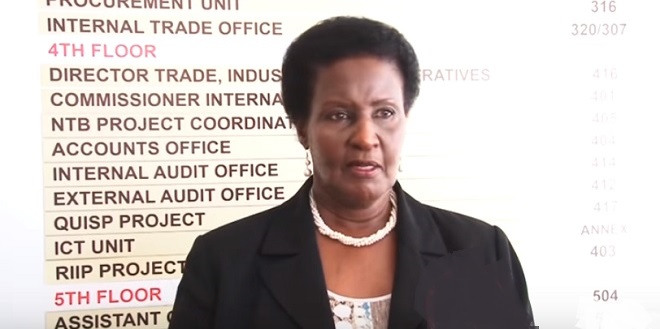
Government procurement is important because, as the biggest procurer of goods and services in the economy, the government needs to buy more from the local manufacturers and producers. Buying local is critical in attracting and sustaining investment since investors are encouraged by economic boom created by the growing demand for local goods.
Local person spending should also be encouraged. The economic cycle created by localisation of production and consumption which is termed as local person spending, creates jobs that enable ordinary citizens to invest back into the economy. When locals buy local, the money they use stays in the community and in the local area. This is Buy Ugandan Build Uganda (BUBU).
Local content enablers
Uganda ought to have fiscal, legal and trade policies that create a level playing field. The government needs to consider a broader range of fiscal and trade policy issues to fully embrace the opportunities associated with local content. On many occasions, foreign companies get tax concessions on imported materials and equipment, concessions which are denied to domestic contractors, particularly in construction and manufacturing. Local manufacturers are often rendered unable to compete in business or on projects in their own home markets. To create a level playing field where the local manufacturing industry can compete on equal terms with foreign competitors, a number of trade related policy issues have to be resolved for instance; the continued tying of bi-lateral assistance to developing countries to the purchase of goods and services from the donor country.
The government needs to promote inclusive negotiation. Most times tax and royalty negotiations usually are conducted in advance of a company knowing what it can achieve in terms of local content. Further, tax and royalty negotiations between companies and governments are usually carried out in secret, and it is difficult to have citizens’ input into negotiations in real time. While issues of timing and confidentiality also influence local content outcomes, it is prudent under Local Content initiatives to practice prior public consultations and to share the final outcomes with the citizens. The government negotiators should also have a clear view of national objectives and capabilities and to negotiate local content provisions with the partner companies.
The government also ought to ensure effectiveness and efficiency of priority infrastructure, such as roads, electricity, and communication lines etc. to reduce costs of doing business and allow for effective crossovers into other economic activities to facilitate quick service delivery.
Finally, there should be a partnership network between companies, Governments and schools, training institutions in research and development. This will help conduct studies, research and investigations that may further the attainment of the goal of developing local content in Uganda.
Future outlook of local content
The Government of Uganda has committed to develop infrastructure such as roads, and power dams like Bujagali; among others to catch up with the ever rising cost of conversion.
The cost of conversion in Uganda is relatively high compared to the other trading partners. These costs; such as freight, tax, interest rates and electricity rates render locally manufactured goods uncompetitive both domestically and globally thus limiting market access. This lack of access to markets is the most critical factor inhibiting full local content adoption.
To tap other markets, deliberate efforts should be dedicated to improving the performance of Ugandan businesses which in the long term should focus on making these businesses attractive to regional markets within the East African Community and beyond.
The integration with other economies such as Common Market of Eastern and Southern Africa (COMESA), East African Community (EAC), and Southern Africa Development Community (SADC) show emphasis and improvement of market opportunities for locally manufactured goods and services.
Under this outward investment, Uganda currently contributes to the global market only 2%. This implies that in the long term perspective, Uganda needs to tap potential markets more in North America, Europe and Asia among others.
Since 2014, the Government of Uganda has committed towards infrastructural development such as roads, electricity, and communication technology. These are crucial for developing local content.
But, on the supply side, workers and businesses need to be aware of the opportunities that are available and how to access them. On the demand side, technical end users and personnel from procurement and human resources departments in companies and international contractors need to understand the capabilities available locally. They must also become aware of how best to make links with local suppliers.
Providing information about future requirements and employment opportunities gives local businesses and workers time to invest in capital equipment and to obtain the necessary skills and expertise. It also benefits international contracting companies that may be more willing to invest in training, supplier development, infrastructure and joint ventures if they have a clearer understanding of future projects and contracts.
Fairly awarding contracts, from pre-qualification and local registers, can be used to ensure that local contractors with the right experience are awarded work while serial contracts can ensure continuous work for promising contractors.
Finally, promotions to harness local content should be done. It should be noted that local content is not only for government but for the general public as well. Government alone cannot support local producers but rather an equal and collective responsibility of all consumers to buy local. We, therefore, have to invest in creating confidence and conscience in the public to embrace buying local.
 The Independent Uganda: You get the Truth we Pay the Price
The Independent Uganda: You get the Truth we Pay the Price



